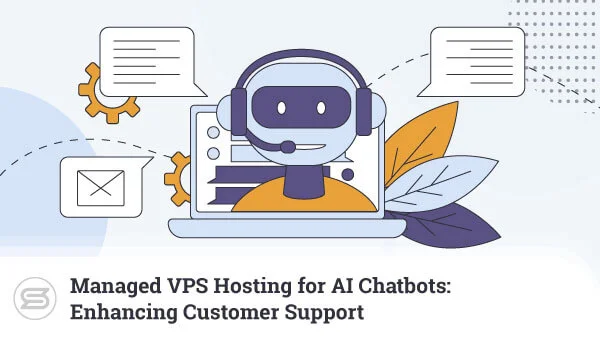Regardless of the scope of their online projects, many entrepreneurs have cost-effectiveness as a prime concern when seeking for a new web host. Free hosting is still a popular service among students and non-profits, but paid solutions are your only viable option if you intend to run a reputable business.
The industry is flourishing, and web hosts are coming up with attractive and innovative options for different clients practically every year.
When we talk about technological advancements, SSD cloud hosting is one of the solutions that first spring to mind. It’s among the latest innovations in the hosting industry and one that is getting more and more affordable with time.
But how is SSD cloud different than traditional web hosting?
What is Web Hosting?
Web hosting is a service, which connects your website to the internet. You are renting server space from your provider, and they ensure your website is always online and running smoothly.
The pool of web hosts is vast, and companies try to distinguish from one another with generous resource allocation, unique features, and lucrative price rates. Clients have options to build all kinds of websites – from small personal blogs to really large business sites. Traditional hosting can be divided into three main services — shared hosting, virtual private servers (VPS), and dedicated solutions.
To get a better understanding of the cloud hosting service, we first need to take a closer look at each of the essential types of offerings.
Types of Traditional Hosting
Shared Hosting
Shared hosting is the most popular option for personal blogs or business websites with a relatively small number of visitors. This kind of service provides a physical server to multiple clients, dividing its system resources between all accounts. This means that disk space, RAM, and CPU are available to all online projects on the same machine.
This environment inevitably takes a toll on site performance as client accounts are rarely isolated from each other. If one website on the server suddenly gets a spike in traffic and starts consuming 75% of the CPU power, all other users will have to share the 25% that’s left. This is called the “bad neighbor effect” and can easily result in reduced loading speeds and even downtimes for the negatively influenced sites.
Website speed is one of the key factors for ranking well in Google, and slow pages are often frowned upon by visitors and search engines alike. Since you are in a shared environment, cyber security is another concern you should have in mind. If a hacker successfully breaches your server or injects malware, all accounts on the same machine are in danger.
So why do so many people choose shared hosting?
It’s quite simple, really — price and ease of use. Shared services are ideal for complete beginners as you don’t need any previous technical skills to take advantage of the service. And because you are utilizing the same server resources with many other clients, you are sharing its costs as well, making the solutions affordable for any type of budget.
But what if you’re looking for better performance and much more control over your website?
VPS Hosting
Opting for a virtual private server, you are still sharing the physical server with other users, but much fewer than on a shared machine. The key here is virtualization — all accounts are completely separated from each other, and every user gets a dedicated set of system resources.
Imagine it like a server within a server.
VPS hosting completely eliminates the “bad neighbor effect,” allowing clients to closely monitor their resource consumption. Speaking of that, virtual servers are highly scalable. You can adjust your CPU, RAM, or space at any time in accordance with your needs.
This helps your budgeting as well. By scaling your resources, you guarantee you’ll always be paying only for as much as you consume. So, if your website is not that resource-heavy, VPS hosting can end up costing you just a bit more than shared solutions.
Virtual servers are highly customizable as well. You have the freedom to install different kinds of software, switch your operating system, tighten your web security. As you can imagine, some experience in server management would give you a significant boost here. Still, even if you are a newbie, you can always pick a reliable managed VPS and trust your hosting support to help you with the technicalities.
To sum it all up, virtual solutions come with more freedom, better performance, and optimized security, compared to shared services.
Dedicated Servers
You are now at the last stage of your web hosting experience. Renting a dedicated server means you are the only client on that machine. Your hosting provider can help with the initial configuration and give you full control of how you’ll utilize it afterward. It is a perfect option for very large websites or projects that need a custom setup to run properly.
Having all that freedom can be a double-edged sword, though.
You have a lot of responsibilities to ensure the proper performance and security of the machine. So, if you don’t have the advanced knowledge or skilled crew to help you with the server management — you are in for a lot of surprises. We strongly recommend finding a managed solution or outside help in such cases.
Dedicated servers are understandably the most expensive type of hosting, even if you only take the hardware costs into account. That’s why large business websites and profitable ecommerce shops are among the most common users of the service.
So, where does SSD fit into all this?
What is SSD?
SSD is short for solid-state drive, one of the latest innovations in storage devices.
Traditional hard disk drives (HDD) are mechanical. They have moving components (spinning platters) that help them operate with stored data. Due to the fact the SSDs work electronically instead of mechanically, they can produce a much better data operation speed.
The absence of moving parts makes solid-state drives much more durable as well. There are minimal risks of transportation damage or service downtimes caused by hardware failure.
Last, but certainly not least, SSD is an eco-friendly solution. The technological sector is one of the biggest contributors to global pollution, so it’s always good to give back to the environment. SSD drives use less power than traditional devices, generate less heat, and help reduce the carbon footprint.
SSD Cloud Hosting
SSD cloud hosting is an entirely different kind of service, relating to how your website is actually hosted. Instead of having your project on one physical machine, you are utilizing a worldwide network of interconnected servers, the so-called “cloud.”
This comes with a lot of attractive benefits.
Downtimes will become a thing of the past, as there is no single point of failure. Even if a server goes down, you have cached copies of your website on multiple other locations. Nothing is different for your site visitors — they will never know something unexpected happened. Every minute of downtime can result in huge traffic and sales losses, but cloud services will have none of that.
Another advantage of the SSD cloud hosting is its scalability – you can not only increase the amount of server resources but decrease it as well. This is very important for a business website, especially if it experiences sudden traffic spikes during a particular season or promotional period.
Reliable SSD cloud hosting comes with the professional assistance of your provider. This means you won’t be responsible for the server configuration, updates, security, etc. Instead, you can focus on your business strategies and find ways to make your online project even more profitable.
If you’re worried about the price, SSD hosts will pleasantly surprise you. Services are often on a per-use basis, meaning you’ll only be paying for the resources you’ve consumed in the previous billing period.
Conclusion
As you can see, the SSD cloud hosting is more advanced than traditional hosting in many aspects. The underlying technology ensures excellent speeds, performance, and efficiency. The amount of system resources is adjustable, which helps with your budgeting as well.
Still, make sure to outline your personal needs, as they would be key when choosing between traditional web hosting and cloud SSD services.
What is a VPS – Everything you need to know!



